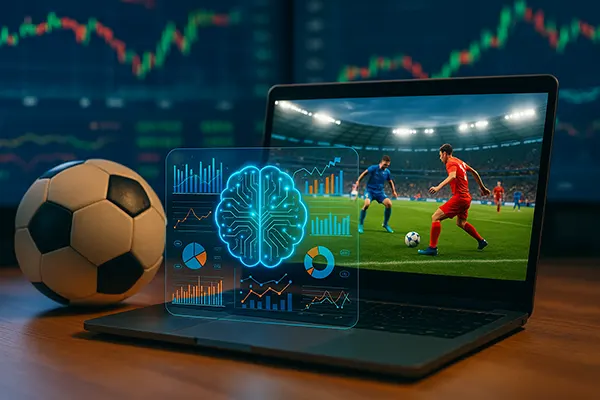
How Artificial Intelligence Is Transforming the Sports Betting Market: Tools, Cases, and Risks
The sports betting market has entered a new era, where artificial intelligence (AI) plays a central role in decision-making, data analysis, and risk management. By 2025, AI is reshaping how bookmakers, analysts, and even players interpret sports data, creating both new opportunities and complex challenges for the industry.
AI Tools Revolutionising Sports Betting
Artificial intelligence tools in the betting industry are no longer experimental—they are integral. Bookmakers employ advanced algorithms that process massive datasets from live matches, player statistics, and even weather conditions. Machine learning systems detect performance patterns invisible to the human eye, improving odds accuracy and helping companies predict match outcomes with unprecedented precision.
One of the most widespread tools in 2025 is predictive analytics powered by neural networks. These systems evaluate real-time data from various leagues and tournaments, adjusting betting odds dynamically. This process ensures fairer pricing for players while reducing the bookmaker’s exposure to unforeseen results.
AI-driven chatbots have also transformed customer interaction. They provide real-time updates, assist with account verification, and personalise offers based on user history. These systems enhance user experience and help betting companies maintain compliance with responsible gaming policies.
Notable Real-World Applications
Several companies have already integrated AI-based systems to stay ahead of competitors. For instance, Bet365 and DraftKings employ proprietary machine learning engines that analyse billions of historical data points to create more precise predictive models. Their algorithms account for player fatigue, travel distance, and even fan sentiment extracted from social media.
Another significant case is Sportradar’s Integrity Services, which uses AI to detect suspicious betting patterns across international markets. By analysing anomalies in real time, it assists regulators and operators in preventing match-fixing and protecting fair competition.
Furthermore, AI has become a key element in sports journalism and analytics platforms. Services like Opta and Stats Perform rely on deep learning to deliver advanced performance metrics used by both professional analysts and sports bettors. These innovations have made data interpretation faster, more transparent, and far more accurate.

Ethical and Regulatory Risks of AI in Betting
Despite its advantages, AI introduces serious risks, particularly in data privacy and algorithmic bias. Predictive systems rely on personal and behavioural data, which can raise ethical concerns if used without transparency or user consent. Regulators across the EU have therefore imposed strict requirements under the Artificial Intelligence Act of 2024, demanding full accountability from operators using automated decision-making systems.
There are also issues related to the so-called “algorithmic bias.” If a model is trained on unbalanced datasets, it may favour certain teams or betting patterns, creating unfair advantages and misrepresenting probabilities. The industry must ensure that AI-driven predictions remain objective and data-driven, not profit-driven.
Moreover, the accessibility of automated betting bots has increased the risk of compulsive behaviour. Some users rely on AI systems to place automated wagers, which can lead to financial harm if not monitored. As a response, responsible gambling organisations now implement AI to detect abnormal betting activity and trigger preventive alerts before problems escalate.
The Future Outlook for 2025 and Beyond
In the coming years, AI is expected to redefine not only betting algorithms but also integrity monitoring, marketing, and user protection. Advanced systems will likely provide personalised betting limits and adaptive feedback mechanisms, supporting player well-being while maintaining engagement.
Collaborations between AI developers, regulators, and sports organisations are growing stronger. Joint initiatives aim to balance innovation with ethics, ensuring that AI becomes a trusted instrument rather than a disruptive force. Transparency and explainability of algorithms will become mandatory components of compliance strategies.
Ultimately, AI’s role in sports betting reflects a broader shift toward data-driven entertainment. The challenge for 2025 lies in maintaining equilibrium between innovation and responsibility, ensuring that technology serves both the industry and its users ethically and effectively.
